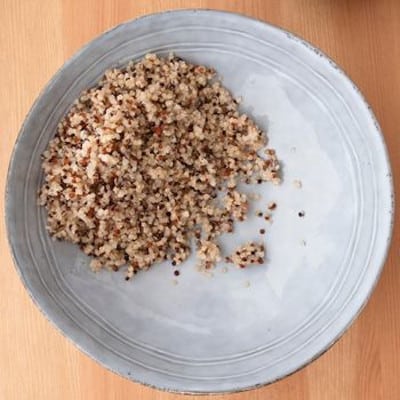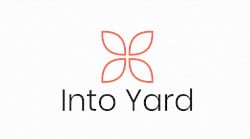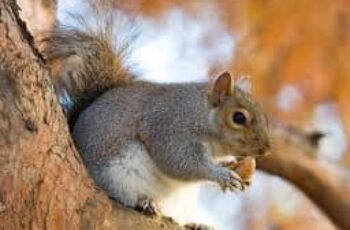Quinoa is a nutritious grain that has gained popularity in recent years as a superfood. It is rich in protein, fiber, minerals, and vitamins, making it a nutritious food for humans. However, as a bird owner, you may be wondering whether your feathered friend can eat quinoa as well.
While quinoa is safe for birds to eat, there are some important things to keep in mind. Raw quinoa contains saponins, which can cause digestive issues and malabsorption of nutrients. Therefore, it is recommended to cook quinoa before feeding it to your bird. Additionally, it is important to prepare quinoa properly to ensure that it is a nutritious food for your bird.
Can Birds Eat Uncooked Quinoa?
Birds can eat uncooked quinoa, but it is not recommended due to the presence of saponins. Saponins are plant compounds that can cause digestive discomfort, inflammation, and malabsorption of nutrients. Uncooked quinoa contains more saponins than cooked quinoa, making it potentially harmful to birds.
It is recommended to soak the quinoa in water for at least 12-16 hours before feeding it to birds. Soaking helps to reduce the saponin content and makes the quinoa easier to digest. After soaking, rinse the quinoa thoroughly with cold water to remove any remaining saponins.
Cooked quinoa is a safer option for birds as it has a lower saponin content and is easier to digest. It is also a good source of essential nutrients such as protein, fiber, and minerals. However, it is important to avoid seasoning the quinoa with salt or other spices as they can be harmful to birds.
When feeding birds, it is important to provide a balanced diet that includes a variety of grains, seeds, vegetables, fruits, nuts, and bird seeds. Other safe options for birds include rice, corn, potatoes, oats, and sprouts. It is recommended to boil water before adding grains or seeds to make them easier to digest.
In conclusion, while birds can eat uncooked quinoa, it is not recommended due to the presence of saponins. Soaking and rinsing the quinoa can help to reduce the saponin content, but cooked quinoa is a safer option for birds. It is important to provide a balanced diet that includes a variety of safe foods for birds to ensure their health and well-being.
Nutritional Value of Quinoa
Quinoa is a superfood that is not only beneficial for humans but also for birds. It is a great source of protein, fiber, minerals, and vitamins. This nutrient-packed grain is an excellent addition to a bird’s diet and can help keep them healthy.
Quinoa is a good source of calcium, iron, magnesium, potassium, phosphorus, copper, zinc, iodine, manganese, and selenium. These minerals are essential for the growth and development of birds. Calcium is crucial for the development of strong bones, while iron is essential for the formation of hemoglobin, a protein that carries oxygen in the blood.
In addition to minerals, quinoa also contains a range of vitamins, including B-complex vitamins and vitamin E. These vitamins are important for the proper functioning of the body and can help boost the immune system.
Quinoa is also rich in essential flavonoids, such as quercetin and kaempferol, which have antioxidant properties. These flavonoids can help protect the body against oxidative stress and inflammation.
Moreover, quinoa contains amino acids, including lysine, which is essential for the growth and repair of tissues, and omega-3 fatty acids, which are important for brain function and heart health.
Overall, quinoa is a nutritious grain that can provide many health benefits to birds. It is a great source of protein, fiber, minerals, and vitamins, and can help keep birds healthy and strong.
Is Uncooked Quinoa Safe for Birds?
Quinoa is a nutritious and versatile grain that is enjoyed by humans and birds alike. However, there is some debate about whether uncooked quinoa is safe for birds to consume.
Raw quinoa contains saponins, which can cause irritation in the digestive tract leading to discomfort, inflammation, and malabsorption of nutrients. This can be especially harmful to birds with sensitive digestive systems, such as parrots, finches, budgies, cockatiels, parakeets, canaries, pigeons, doves, ducks, geese, and other species.
While some sources suggest that birds can eat uncooked quinoa without issue, it is generally recommended that quinoa be cooked before feeding it to birds. Cooking quinoa removes the saponins and makes the grain easier to digest.
If you do choose to feed your bird uncooked quinoa, it is important to rinse it thoroughly before serving to remove any dirt or debris. Additionally, it is a good idea to introduce quinoa slowly and in small amounts to ensure that your bird does not have an adverse reaction.
Overall, while uncooked quinoa may be safe for some birds to consume, it is generally recommended that quinoa be cooked before feeding it to your feathered friend. This will help ensure that your bird can enjoy the many nutritional benefits of quinoa without any digestive issues.
Can Birds Eat Cooked Quinoa?

Yes, birds can eat cooked quinoa, whether wild birds or pet birds. In fact, it is a nutritious and healthy addition to their diet. Quinoa is a great source of protein, fiber, vitamins, and minerals that birds need to stay healthy and active. Cooked quinoa is also easier for birds to digest than uncooked quinoa, making it a perfect food for their delicate digestive systems.
However, it is important to note that quinoa should not be the sole source of a bird’s diet. Birds require a varied diet that includes fruits, vegetables, seeds, and grains to meet their nutritional needs. Additionally, it is important to avoid seasoning the quinoa with salt, spices, or oils, as these can be harmful to birds.
In conclusion, cooked quinoa can be a healthy and tasty treat for your feathered friends, but it should be given in moderation as part of a balanced diet.
Benefits of Feeding Birds Quinoa
Quinoa is a nutritious food that can be a great addition to a bird’s diet. It is considered a superfood due to its high nutrient content, making it a great source of energy for birds. Here are some of the benefits of feeding birds quinoa:
Nutritious Food
Quinoa is a great source of protein, fiber, and essential amino acids. It also contains vitamins B and E, iron, magnesium, and potassium. All of these nutrients are important for a bird’s overall health and well-being.
Superfood
As mentioned earlier, quinoa is considered a superfood due to its high nutrient content. It is also gluten-free, making it a great option for birds with gluten sensitivities.
Energy
Quinoa is a great source of energy for birds. It contains complex carbohydrates that are slowly released into the bloodstream, providing a steady source of energy throughout the day.
Colors
Quinoa comes in a variety of colors, including white, red, and black. These colors are due to the presence of flavonoids and antioxidants. These compounds have been shown to have anti-inflammatory and anti-cancer properties.
Antioxidants
Quinoa is rich in antioxidants, which help protect cells from damage caused by free radicals. Free radicals are molecules that can damage cells and contribute to the development of diseases such as cancer and heart disease.
Flavonoids
Quinoa also contains flavonoids, which are plant compounds that have been shown to have anti-inflammatory and anti-cancer properties. These compounds may also help improve digestion and reduce the risk of certain diseases.
In conclusion, feeding birds quinoa can be a great way to provide them with a nutritious and energy-rich food source. Quinoa is also a superfood that contains antioxidants, flavonoids, and other beneficial compounds that can help improve a bird’s overall health and well-being.
Preparation and Feeding Tips
When it comes to feeding quinoa to birds, it is important to properly prepare it to ensure it is safe and digestible. Here are some tips to follow:
- Wash and Rinse: Before preparing quinoa for birds, it is important to wash and rinse it thoroughly to remove any dirt, debris, and saponins. Saponins are naturally occurring compounds found in quinoa that can cause digestive discomfort and malabsorption of nutrients in birds.
- Soak or Sprout: Soaking or sprouting quinoa can help reduce the number of saponins and make it easier to digest for birds. To soak quinoa, rinse it well and then soak it in warm water for several hours or overnight. To sprout quinoa, follow these steps: rinse quinoa several times, then soak it for 12-16 hours, rinse it again, and then let it sit at room temperature for another 12-16 hours until sprouts appear.
- Moderation: While quinoa is a healthy and nutritious food, it should be fed to birds in moderation. Too much quinoa can lead to weight gain and other health problems. Experts recommend feeding quinoa as a treat or supplement to a balanced diet, rather than as a staple food.
- Side Effects: Raw or uncooked quinoa can be difficult for birds to digest and may cause digestive upset. It is important to cook quinoa thoroughly before feeding it to birds. Additionally, quinoa should not be fed to birds that are allergic to grains or have a sensitivity to quinoa.
- Feeding: Once quinoa is properly prepared, it can be fed to birds in a variety of ways. It can be mixed in with their regular food, served as a standalone treat, or used to make homemade bird treats. When feeding quinoa, it is important to monitor your bird’s intake and make sure they are not overeating or experiencing any negative side effects.
By following these preparation and feeding tips, bird owners can safely and responsibly incorporate quinoa into their bird’s diets as a healthy and nutritious treat.
Conclusion
In conclusion, birds can eat quinoa, whether it is cooked or uncooked. This super grain is a nutritious addition to a bird’s diet, providing protein, fiber, vitamins, and minerals that are essential for their health.
Red quinoa seeds are also a great option for birds as they contain more antioxidants than other types of quinoa. While birds can enjoy both sprouted or cooked quinoa, it is important to avoid seasoning the quinoa with salt, spices, or oils as these can be harmful to birds.
Quinoa can be a great alternative to traditional bird food and can provide a healthy and tasty treat for our feathered friends.


